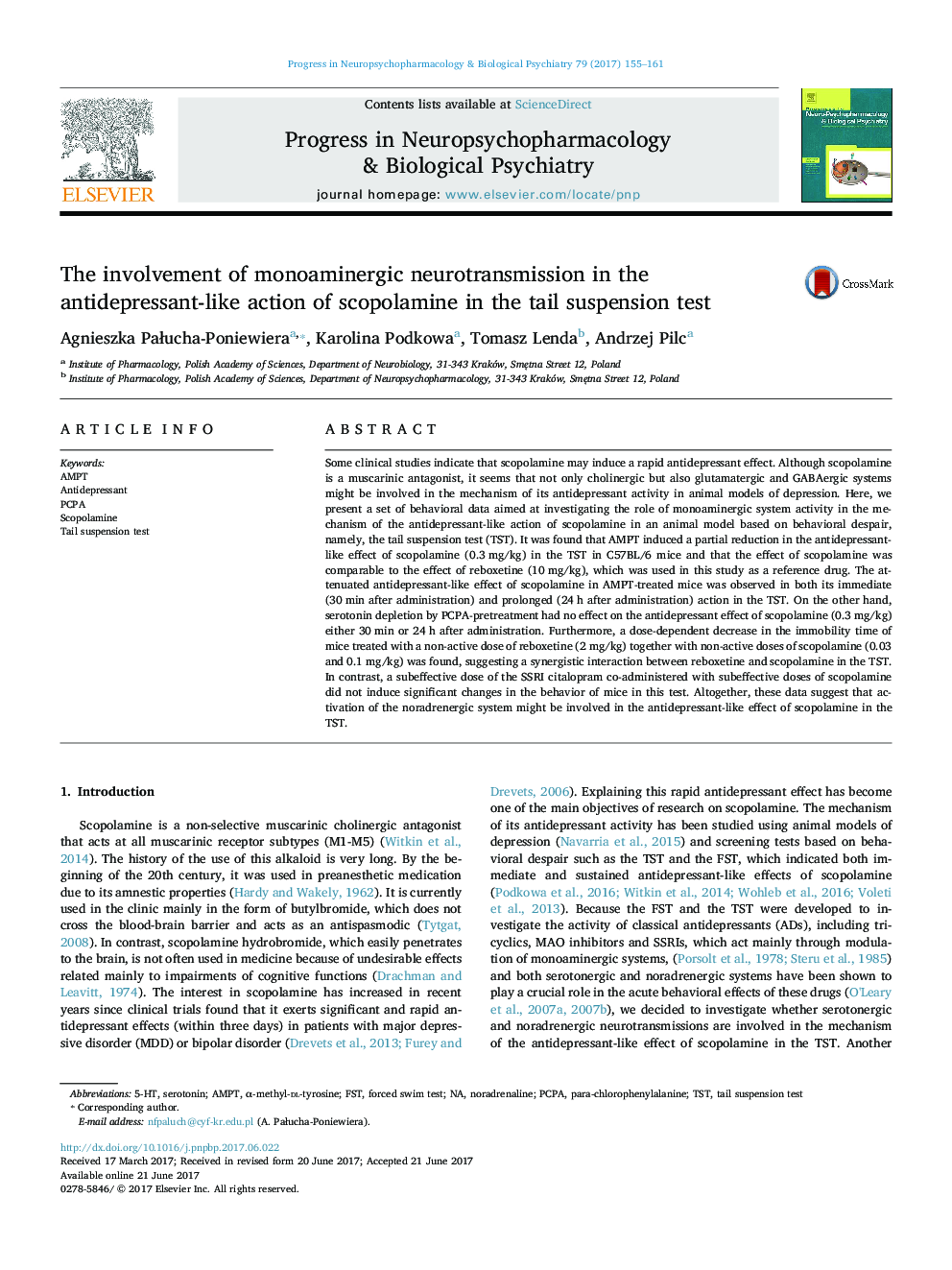| کد مقاله | کد نشریه | سال انتشار | مقاله انگلیسی | نسخه تمام متن |
|---|---|---|---|---|
| 5557915 | 1403191 | 2017 | 7 صفحه PDF | دانلود رایگان |
- Pharmacological reduction of catecholamines attenuates antidepressant-like effect of scopolamine in mice
- Serotonin depletion does not influence the activity of scopolamine in the TST
- Scopolamine enhances antidepressant effects of reboxetine in the TST
Some clinical studies indicate that scopolamine may induce a rapid antidepressant effect. Although scopolamine is a muscarinic antagonist, it seems that not only cholinergic but also glutamatergic and GABAergic systems might be involved in the mechanism of its antidepressant activity in animal models of depression. Here, we present a set of behavioral data aimed at investigating the role of monoaminergic system activity in the mechanism of the antidepressant-like action of scopolamine in an animal model based on behavioral despair, namely, the tail suspension test (TST). It was found that AMPT induced a partial reduction in the antidepressant-like effect of scopolamine (0.3Â mg/kg) in the TST in C57BL/6 mice and that the effect of scopolamine was comparable to the effect of reboxetine (10Â mg/kg), which was used in this study as a reference drug. The attenuated antidepressant-like effect of scopolamine in AMPT-treated mice was observed in both its immediate (30Â min after administration) and prolonged (24Â h after administration) action in the TST. On the other hand, serotonin depletion by PCPA-pretreatment had no effect on the antidepressant effect of scopolamine (0.3Â mg/kg) either 30Â min or 24Â h after administration. Furthermore, a dose-dependent decrease in the immobility time of mice treated with a non-active dose of reboxetine (2Â mg/kg) together with non-active doses of scopolamine (0.03 and 0.1Â mg/kg) was found, suggesting a synergistic interaction between reboxetine and scopolamine in the TST. In contrast, a subeffective dose of the SSRI citalopram co-administered with subeffective doses of scopolamine did not induce significant changes in the behavior of mice in this test. Altogether, these data suggest that activation of the noradrenergic system might be involved in the antidepressant-like effect of scopolamine in the TST.
Journal: Progress in Neuro-Psychopharmacology and Biological Psychiatry - Volume 79, Part B, 3 October 2017, Pages 155-161
